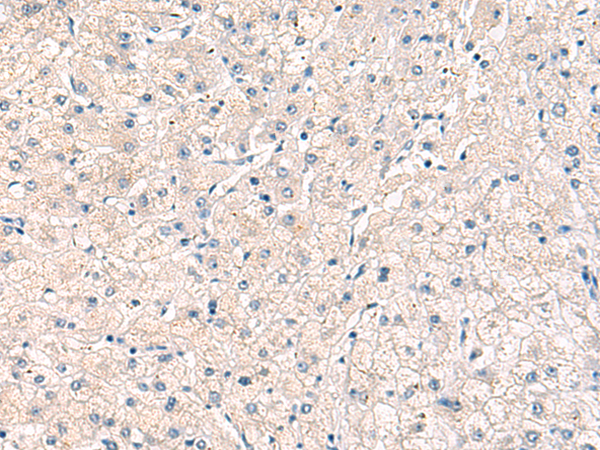
| WB | 咨询技术 | Human,Mouse,Rat |
| IF | 咨询技术 | Human,Mouse,Rat |
| IHC | 1/10-1/50 | Human,Mouse,Rat |
| ICC | 技术咨询 | Human,Mouse,Rat |
| FCM | 咨询技术 | Human,Mouse,Rat |
| Elisa | 1/5000-1/10000 | Human,Mouse,Rat |
| Aliases | HP; A-259H10.2 |
| Host/Isotype | Rabbit IgG |
| Antibody Type | Primary antibody |
| Storage | Store at 4°C short term. Aliquot and store at -20°C long term. Avoid freeze/thaw cycles. |
| Species Reactivity | Human |
| Immunogen | Synthetic peptide of human HPR |
| Formulation | Purified antibody in PBS with 0.05% sodium azide and 50% glycerol. |
+ +
以下是3篇关于HPR(Hypoxanthine Phosphoribosyltransferase,次黄嘌呤磷酸核糖转移酶)抗体的参考文献摘要概览:
---
1. **文献名称**:*"Autoantibodies against hypoxanthine phosphoribosyltransferase in systemic lupus erythematosus"*
**作者**:Saito K, et al.
**摘要**:研究报道了系统性红斑狼疮(SLE)患者血清中存在的HPRT自身抗体,发现其与疾病活动性相关。通过ELISA和蛋白质印迹法验证了抗体的特异性,提示HPRT可能作为自身抗原参与SLE发病机制。
---
2. **文献名称**:*"Development of monoclonal antibodies specific for human HPRT and their application in metabolic disorder diagnostics"*
**作者**:Thompson R, et al.
**摘要**:团队开发了针对人源HPRT的单克隆抗体,验证其在免疫组化和Western blot中的高特异性。该抗体被用于Lesch-Nyhan综合征(HPRT缺陷症)的快速诊断,提高了检测灵敏度和效率。
---
3. **文献名称**:*"HPRT deficiency induces autoantibody production via dysregulated purine metabolism"*
**作者**:Chen L, et al.
**摘要**:探讨HPRT酶缺陷如何通过嘌呤代谢紊乱导致自身免疫反应。动物模型显示,HPRT缺失会释放细胞内容物(如HPRT蛋白),触发抗HPRT抗体生成,为遗传代谢病与自身免疫的关联提供新证据。
---
如需更多文献或调整摘要细节,请补充说明具体研究方向(如疾病类型或抗体应用场景)。
Horseradish peroxidase (HRP) antibodies are immunoglobulins specifically designed to target and bind to the enzyme horseradish peroxidase, a glycoprotein derived from the roots of *Armoracia rusticana*. Since its discovery in the 1930s, HRP has become a cornerstone in biochemical assays due to its ability to catalyze colorimetric, chemiluminescent, or fluorescent reactions when paired with substrates like TMB (3.3',5.5'-tetramethylbenzidine) or luminol. HRP-conjugated antibodies emerged as critical tools in immunoassays, notably in ELISA, Western blotting, and immunohistochemistry, enabling the detection of target antigens with high sensitivity.
The development of HRP antibodies accelerated in the 1970s with advancements in monoclonal antibody technology, enhancing specificity and reducing cross-reactivity. These antibodies are typically produced by immunizing animals (e.g., rabbits, mice) with purified HRP, followed by hybridoma generation or phage display techniques. Their small size (~44 kDa) and stability under diverse conditions make them ideal for diagnostic and research applications.
Today, HRP antibodies are indispensable in biomedical research, clinical diagnostics (e.g., detecting infectious diseases, cancer biomarkers), and therapeutic monitoring. Challenges include minimizing non-specific binding, which is addressed through optimized blocking buffers and purification methods. Innovations like recombinant HRP systems continue to refine their utility, balancing cost-effectiveness with performance in high-throughput settings.
×